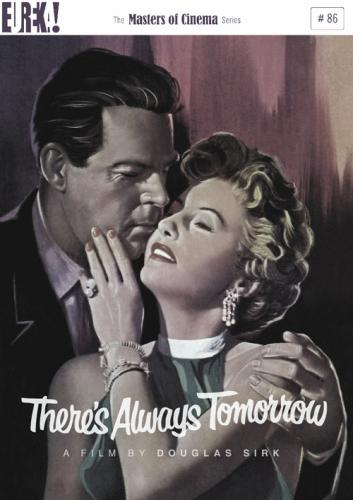Pete’s Peek | Douglas Sirk’s There’s Always Tomorrow is melodrama at its best

The latest updates, reviews and unmissable series to watch and more!
You are now subscribed
Your newsletter sign-up was successful
Want to add more newsletters?

ONCE A WEEK
What to Watch
Get all the latest TV news and movie reviews, streaming recommendations and exclusive interviews sent directly to your inbox each week in a newsletter put together by our experts just for you.

ONCE A WEEK
What to Watch Soapbox
Sign up to our new soap newsletter to get all the latest news, spoilers and gossip from the biggest US soaps sent straight to your inbox… so you never miss a moment of the drama!
When it comes to glossy, glamorous Hollywood melodramas, richly textured with solid scripting, impeccable acting, and a fine eye for detail, director Douglas Sirk ranks amongst the best. Throughout the 1950s, cinema audiences couldn't get enough of his full-blown soaps on the big screen, that made stars out of the likes of Rock Hudson, Lana Turner and Jane Wyman.
Seven of Sirk's finest creations are already available in a DVD box-set, and include Imitation of Life, Written on the Wind, and All That Heaven Allows (the film that inspired Rainer Werner Fassbinder's Fear Eats the Soul and Todd Haynes' Far From Heaven). Now comes the Masters of Cinema release of Sirks' 1956 drama There's Always Tomorrow.
Likeable Hollywood star Fred McMurray (better known as the widowed patriarch in TV's My Three Sons) plays Clifford Groves, a toy factory owner heading for a mid-life crisis. Feeling left out by hs wife Marion ('If life was always an adventure, it would be exhausting'), and taken for granted by his children, Clifford meets old flame Norma (Barbara Stanwyck, McMurray's co-star in 1944's Double Indemnity), and is soon questioning his choices in life and love.
Heightened by fantastic monochrome cinematography by Sirk favourite Russell Metty, There's Always Tomorrow is a sharp study of the male midlife crisis, suburban conformity and the nature of love versus desire. It's presented here in a beautiful, new anamorphic transfer.
Accompanying the release is Days With Sirk, a compelling look at the man behind the camera. Filmed at his home in Switerland in 1982 just before a retrospective of his films, the 61-minute doco lets Sirk talk about his flight from the Nazis, his dealings with the McCarthy era in the US, and the filming process. He also gives away the secret of his success: that form is more important than content and that film must always be moving (a lesson for Tom Ford maybe?).
A great addition to your Douglas Sirk collection.
The latest updates, reviews and unmissable series to watch and more!

